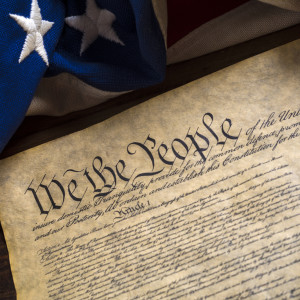Editor’s Note: For another viewpoint, see Counterpoint: Betsy DeVos is the Real Civics Failure
Wherever you look — church, state, news media, social media, high schools, universities, dinner tables, conference rooms — it’s impossible to miss the anger and hyper-partisanship gripping America.
Even the crisis over the coronavirus has not brought Americans together in such a way as to bridge these divides permanently.
While there are a number of reasons for this, one of the root causes is civic illiteracy: The fact that the vast majority of Americans don’t understand and appreciate the principles and history that bind us together as citizens.
The situation isn’t likely to improve any time soon. For decades, U.S. schools have downplayed the importance of civic education.
Our children are not forgetting how America’s unique form of constitutional government works “of the people, by the people, and for the people,” the first of its kind in world history. They’re not being properly taught.
The just-released results from the 2018 National Assessment of Educational Progress (NAEP) on U.S. history and civics tests, given to 8th graders nationwide, confirm this. Only 24 percent of students performed at or above the “proficient” level in civics and an anemic 15 percent exhibited a satisfactory knowledge and understanding of American history. Some 16,400 students took the history test; 13,400 were tested in civics.
Such scores are not new. They were similarly bad in 2014, 2010 and in previous years.
In addition to ignorance, the NAEP test scores illustrate something that’s perhaps even more destructive: ambivalence.
We need the American people — especially young people — to love their country and to realize that America is not like other places. It’s not a “blood and soil” nation where people love it instinctively. It’s a place — a people — united by shared principles that go back to our Founding.
For America to hold together and flourish, for the anger and divisions to soften, the American people have to understand why their nation deserves their affection.
As President Ronald Reagan warned the country in his farewell address 30 years ago, patriotism “won’t count for much, and it won’t last unless it’s grounded in thoughtfulness and knowledge.”
As we see from the declining level of discourse in our society, this lack of thoughtfulness, knowledge and affection is having serious long-term consequences.
While there has been some renewed interest in civic education, public-school officials don’t appear to be taking the matter seriously enough.
Just eight states, for example — Colorado, Idaho, Maryland, Nevada, North Carolina, Virginia, West Virginia and Wyoming — require high school students to take a full year of civics, according to a 2018 study by Education Week. And only 28 states, the study showed, require a full year of U.S. history.
So, absent significant changes, there’s little reason to believe things will get better any time soon.
The history of America is not a collection of names, dates, places and events — the typical way it is taught today. It’s about ideas — ideas that can only be found in the writings and documents of the women and men who created our country and those who have guided it since.
We don’t have a crisis of facts and information — we have a crisis of understanding and devotion. People are divided because too many Americans, especially younger Americans, don’t understand the principles of our Founding or see America’s history as a struggle to live up to those principles of freedom.
Americans’ knowledge of and respect for our most essential institutions and our special form of government has rarely felt so fragile. Now is the time to decide: Will we, as Abraham Lincoln asked: “nobly save, or meanly lose, the last best hope of earth?”
If we hope to “nobly save” our country, we need to cure civic illiteracy and restore faith in our unique form of government.
That can only be accomplished by teaching young Americans why their country is worthy of their love and respect.

